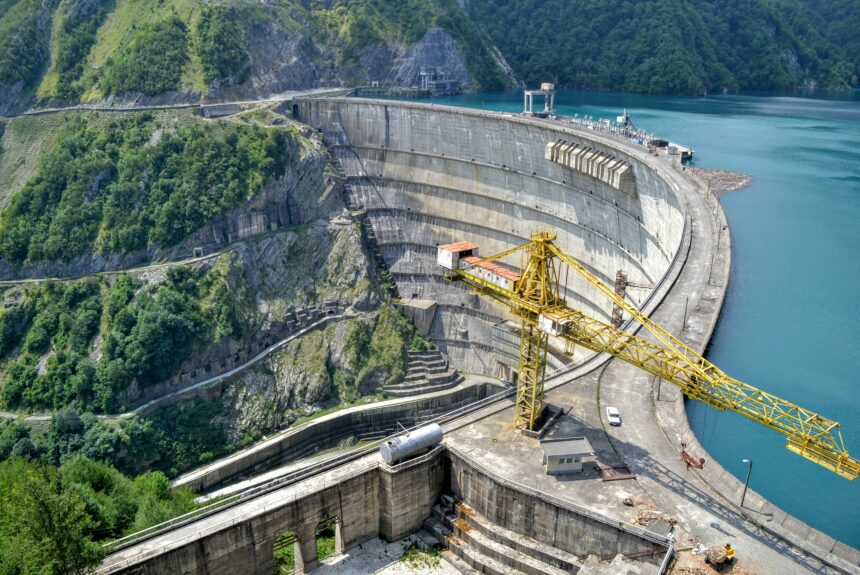Policy agendas have largely been drawn by partisan lines. Historically, energy and climate change have been no different, but this trend is beginning to turn as regulatory and permitting reform has become a bipartisan priority on Capitol Hill. As E&E News recently reported:
Capitol Hill’s permitting reform effort got new life Wednesday as two top Senate and House lawmakers held an initial summit on reviving the overhaul bid. This time, the House could take the lead.
Senate Energy and Natural Resources Chair Joe Manchin (D-W.Va.) and House Natural Resources Chair Bruce Westerman (R-Ark.) are discussing the path forward for the stalled permitting reform effort.
Permitting reform will help get more energy supplies online faster, which will help lower prices and increase reliability. Modernizing the process should expedite the delivery of clean energy projects, increasing their competitiveness and reducing emissions.
Permitting—and its inefficiencies—affects nearly every project in the United States. Before construction can begin on a key infrastructure or energy project, developers must first undergo review through the National Environmental Policy Act (NEPA). While certain projects may receive a categorical exclusion, which means it does not have “a significant effect on the human environment,” a majority must complete an environmental assessment (EA) or environmental impact statement (EIS) to begin before construction. On average, it takes approximately 4.5 years to complete the NEPA permitting and review process. And while Congress and different presidential administrations have tried to clarify permitting over the years, the federal process to site and approve projects remains convoluted and is hampering clean energy and infrastructure goals.
>>>READ: Without Regulatory Reform, Biden’s Climate Victory Lap Will Face Roadblocks
While NEPA is the most notorious regulatory roadblock, unclear and complex transmission guidelines that move through multiple agencies are keeping energy from reaching consumers, increasing costs for new development and for ratepayers. As it stands, states are responsible for regulating transmission within their respective borders, but no efficient regulatory framework exists for interregional transmission, which has made it essentially non-existent. As a result, the United States has not been able to build enough transmission capacity to keep up with the increasing supply of clean energy projects which is increasing costs for developers and delaying advancements in clean generation and reliability.
The need to modernize permitting has received increased attention in light of the passage of the Infrastructure Investment and Jobs Act (IIJA) and the Inflation Reduction Act (IRA). Energy provisions in the IIJA included $4.5 billion for infrastructure and grid resilience, $5 billion for carbon transportation and storage, and $2.25 billion for port infrastructure and offshore wind. This funding, mixed with the subsidies and tax breaks for green technologies under the IRA, are leading to an influx of private sector investments. The problem is that developers are having trouble getting their projects built. As Jennifer Hiller of The Wall Street Journal reports:
Despite billions of dollars in federal tax credits up for grabs and investors eager to fund clean energy projects, the pace of development has ground to a crawl and many renewables plans face an uncertain path to completion. Supply-chain snags, long waits to connect to the grid and challenging regulatory and political environments across the country are contributing to the slowdown, analysts and companies say.
Devin Hartman of the R Street Institute has described permitting as a kink in the “regulatory hose.” Without meaningful reforms, subsidies and federal incentives for clean energy will only increase pressure in the regulatory hose. Beyond clean energy, permitting backlogs are also making wildfires worse by delaying active forest management including prescribed burns and mechanical thinnings.
>>>READ: Without Reforms to the Environmental Review Process, Wildfires Will Grow Worse
Thankfully, policymakers from both sides of the aisle are taking notice. As Rep. Scott Peters told E&E:
“I think, on the conservative side, they’ve always wanted to reform processes to get to answers faster…and I think, now, if you’re an environmentalist, you have to be concerned that we don’t have much time to build all these things we have to build … solar, utility-scale solar, public transportation — we have to build things a lot faster, and that’s going to require taking a look at permitting reform. If you’re a climate activist, you have to acknowledge it’s time to look at that.”
As documented by C3 Solutions’ Climate and Freedom Agenda, there are several pieces of legislation that conservatives have introduced that would speed up the permitting process. One of these is the BUILDER Act which has been introduced by Rep. Garret Graves (R-LA) and will be the starting point for conservative negotiations on the issue, per E&E’s reporting. The BUILDER Act aggregates several NEPA reform bills to expedite timelines, increase accountability, improve efficiency, and curb excessive litigation.
With bipartisan support for policies in the climate and energy space seeming to be few and far between, it is encouraging to see both sides of the aisle come together and recognize the need to modernize our country’s permitting process to accomplish key energy and environmental objectives.
The views and opinions expressed are those of the author’s and do not necessarily reflect the official policy or position of C3.
